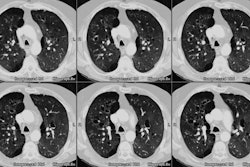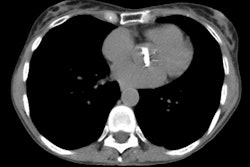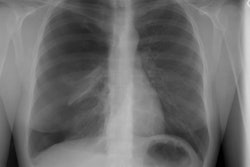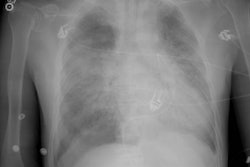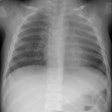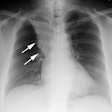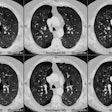Radiology 2001 Nov;221(2):508-14
Reperfusion edema after lung transplantation: effect of daclizumab.
Marom EM, Choi YW, Palmer SM, DeLong DM, Stuart MD, McAdams HP.
PURPOSE: To determine if daclizumab, an interleukin-2 antagonist, reduced the
severity of reperfusion edema in lung transplant recipients. MATERIALS AND
METHODS: Eighty-five patients who were to undergo 86 consecutive lung
transplants were included; 43 (50%) received daclizumab in addition to
conventional immunosuppression. Patients were assigned to one of the following
groups: control, right allograft; control, left allograft; daclizumab treated,
right allograft; daclizumab treated, left allograft. Radiographs obtained in the
first 5 postoperative days were evaluated for degree of edema. Mean daily edema
scores and curves for control and daclizumab-treated groups were compared.
Differences in survival at 1, 3, 6, and 12 months after transplantation, days of
mechanical ventilation, and the ratio of arterial oxygenation to inspired oxygen
level at 1, 3, and 5 days after transplantation were also compared. RESULTS:
Mean daily edema scores, edema curves, survival, days of mechanical ventilation,
and ratio of arterial oxygenation to inspired oxygen level at 1 and 3 days after
transplantation did not significantly differ between daclizumab-treated and
control groups. A trend toward improved survival in the daclizumab-treated group
was noted. CONCLUSION: Daclizumab had no effect on the radiographic or immediate
clinical manifestations of reperfusion edema in lung transplant recipients.
Additional follow-up is needed to determine if daclizumab offers any long-term
benefit in terms of reduced rejection rates or survival.
